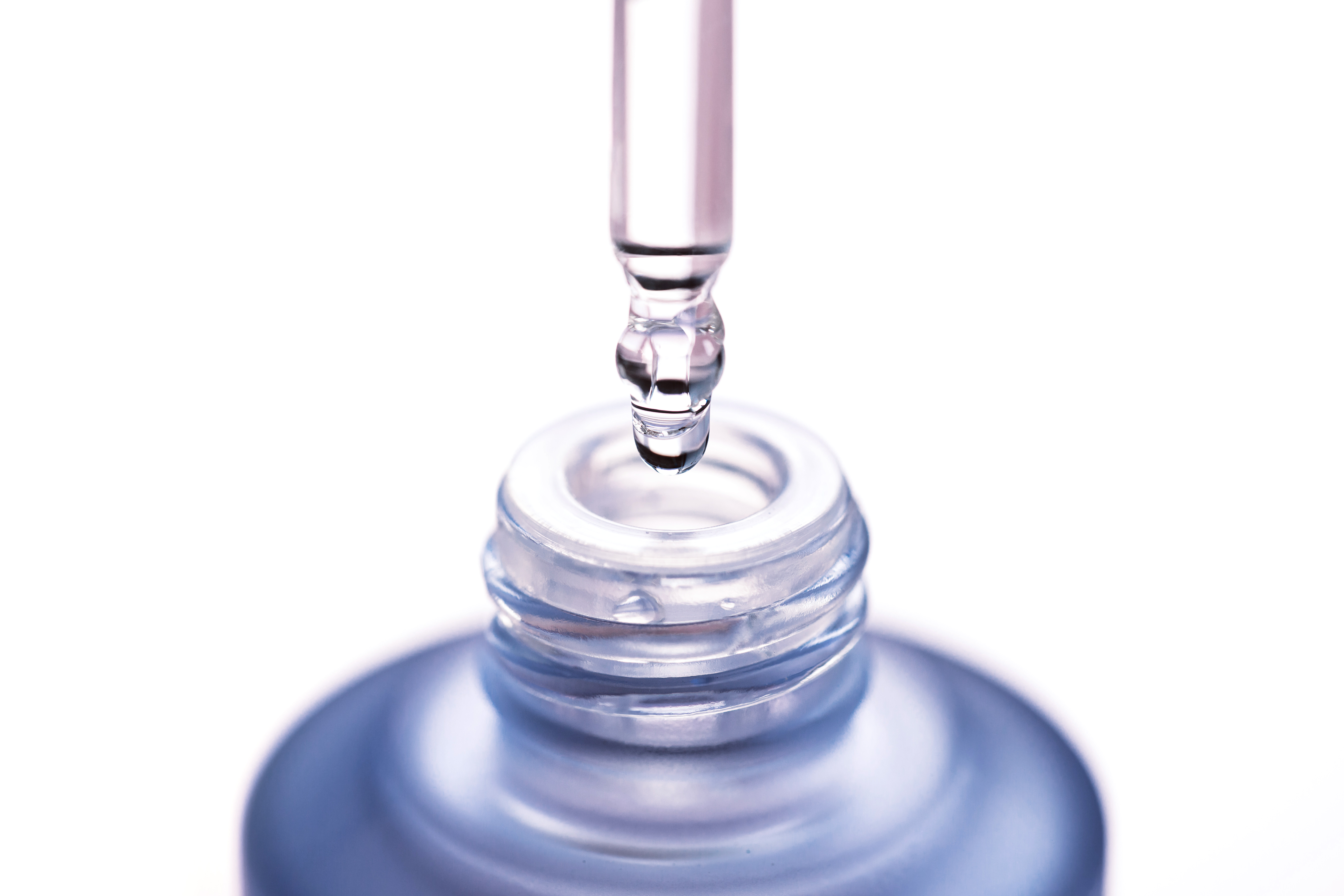What is beta hydroxy acid and how does it work?
BHA, or beta hydroxy acid, has become one of the most hyped-about skincare ingredients worth knowing about


Beta hydroxy acid, commonly abbreviated as BHA, is an ingredient gaining more mainstream traction within the skincare community. You probably recognize it on the labels of your favorite drugstore products at this point, even though you may not realize it, as it's a well-known and fairly accessible component in the fight against aging.
Skin becomes thinner and less elastic as we get older and fine lines, creases, and wrinkles can also start to appear. This is caused by a reduction of collagen, our skin's built-in protection from the sun, as well as other forms of environmental damage.
Modern-day beauty products offer a wide range of solutions to help with these woes, and an increasing amount of them contain beta hydroxy acid. Depending on your goals, incorporating it into your everyday skincare routine might be one of the best beauty decisions you make.
What is beta hydroxy acid?
Beta hydroxy acid (BHA) may not be as well known as another skin-enriching exfoliant, alpha hydroxy acid (AHA). However, its ability to brighten dull, aging skin is making it a popular beauty ingredient in a wide variety of cosmetics available today. While alpha hydroxy acids are derived from foods such as sugary fruits, the only beta hydroxy acid commonly used in skincare products is salicylic acid. Salicylic acid is derived from aspirin and is well regarded the world over for its acne-fighting properties.
Beta hydroxy acid is soluble in oil. This makes it an ideal skincare routine choice if you are prone to blackheads and whiteheads. It is able to penetrate deeply into pores and effectively remove dead skin cells. Because alpha hydroxy acid is only water-soluble, it works best for peeling away the surface of your skin so that new skin cells can generate. Some skincare products combine beta hydroxy acid and alpha hydroxy acid to achieve the benefits of both elements in one formula.
Beta hydroxy acid benefits
Beta hydroxy acid's beautifying benefits are no longer a skincare secret. Science-based cosmetic companies such as Dermalogica, ASAP, and Paula's Choice regularly use both alpha and beta hydroxy acids in their products. The benefits of adding the multi-tasking beta hydroxy acid are numerous and a key component to attaining radiant skin. Here are a few reasons to give it a try:
- It improves skin tone and texture. Beta hydroxy acid, used as an exfoliant, improves hydration by lifting dead skin cells and cleaning out clogged pores. This in turn helps moisture retention from skincare products and improves skin tone.
- It's great for combination or oily skin. Products containing BHAs go deep into the skin, effectively drying out excess oils and cleansing pores and preventing congestion that leads to acne.
- It decreases the appearance of fine lines and wrinkles. It's used as an ingredient in facial creams since it gives your skin a smoother appearance. The exfoliating properties remove tired skin cells, revealing fresher skin underneath.
- It can work as an anti-inflammatory. BHAs help fight and treat acne inflammation by reaching into pores and reducing the amount of oil your skin produces.
Does beta hydroxy acid have side effects?
Although BHA is known to be less irritating to the skin than AHA, it can still have some adverse effects. High concentrations of the ingredient might cause redness, itching, or burning. Beta hydroxy acid is thought to reverse skin damage caused by photoaging, but it can also significantly increase sun sensitivity. It is a good idea to apply the best facial sunscreen available to you for maximum UVA and UVB protection when using products with this ingredient.
Sign up to our free daily email for the latest royal and entertainment news, interesting opinion, expert advice on styling and beauty trends, and no-nonsense guides to the health and wellness questions you want answered.
Beta hydroxy acid is safe to use for most skin types, but it's important to carefully read and follow the instructions of any product. Use it as directed and avoid exceeding the recommended application. You should patch-test, or test on a small area of your skin, before applying it liberally to make sure there is no reaction. If in doubt, talk to your doctor or dermatologist first.
When to use beta hydroxy acid (and when not to)
Beta hydroxy acid is popular as an acne-busting warrior especially when figuring out how to get rid of blackheads and pimples for the first time, but it also is gentle enough for sensitive skin. Its skin-calming properties make it an ideal choice for those prone to rosacea or redness.
Oily skin benefits most from salicylic acid because of its natural ability to penetrate pores. Use it to exfoliate dead skin cells for a fresher, radiant appearance. It is also great for treating pimples and bumps on your skin when used as a topical cream. However, all skin types can benefit from beta hydroxy acid, whether it is part of a daily skincare routine or targeted to specific problems.
Anyone allergic to aspirin should not use beta hydroxy acid. Anyone with very dry skin should be aware that overusing products containing any acids can cause red, raw skin with possible burns. Those with sun sensitivity or prone to sunburns should remember the importance of using quality sun protection when going outdoors.
How to use beta hydroxy acid
Beta hydroxy acid can be found as an ingredient in eye creams, cleansers, some of the best foundations, and sunscreens. It is also used in a variety of body washes and even haircare products.
Incorporating beta hydroxy acid into your skincare routine is only a matter of choosing the right product that works for you. You can remove impurities or excess oil from your pores with clearing skin washes, or look for a combination of alpha and beta hydroxy acids in face creams for a balanced and smoothing result.
You could also choose a cooling face mask with BHA to treat any blemishes and give your face a head start on preventing further outbreaks.
Ultimately, there’s no single way to use beta hydroxy acid. The best thing is to try it out and find out what works for you, adjusting it as the needs of your skin change.
A lifelong creative writer and beautyphile, Eunice Lucero-Lee graduated from De La Salle University in 2002 and was hired a year later to front all beauty coverage for Pink Magazine. A beauty, astrology, and pop culture obsessive and insider for over 18 years, Eunice is an internationally published editor (and now certified astrologer) whose work has been featured in publications such as Cosmopolitan, Esquire, and The Numinous, among many others.
